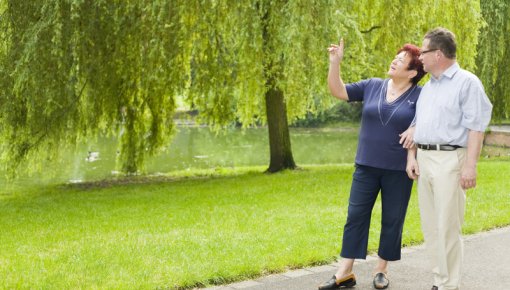Medication wasn't a long-term solution
As time went by, my symptoms got worse. I had to go to the toilet a lot in the evening and at night. My stream of urine wasn't as strong anymore. It couldn't flow out properly and I always felt like something was left behind. As a result, I often had infections and inflammations, which I often had to take antibiotics for. This happened more and more, and the sudden urges to pee also became more frequent. I don't really like taking pills. It was clear to me that I didn't want to keep taking them forever.
Work is very important to me – I really enjoy working, and I work a lot. But because of my problems and medication I was sometimes unable to go to work for a day or half a day. The medication made it difficult for me to work, and not being able to work the way I wanted to was frustrating.

